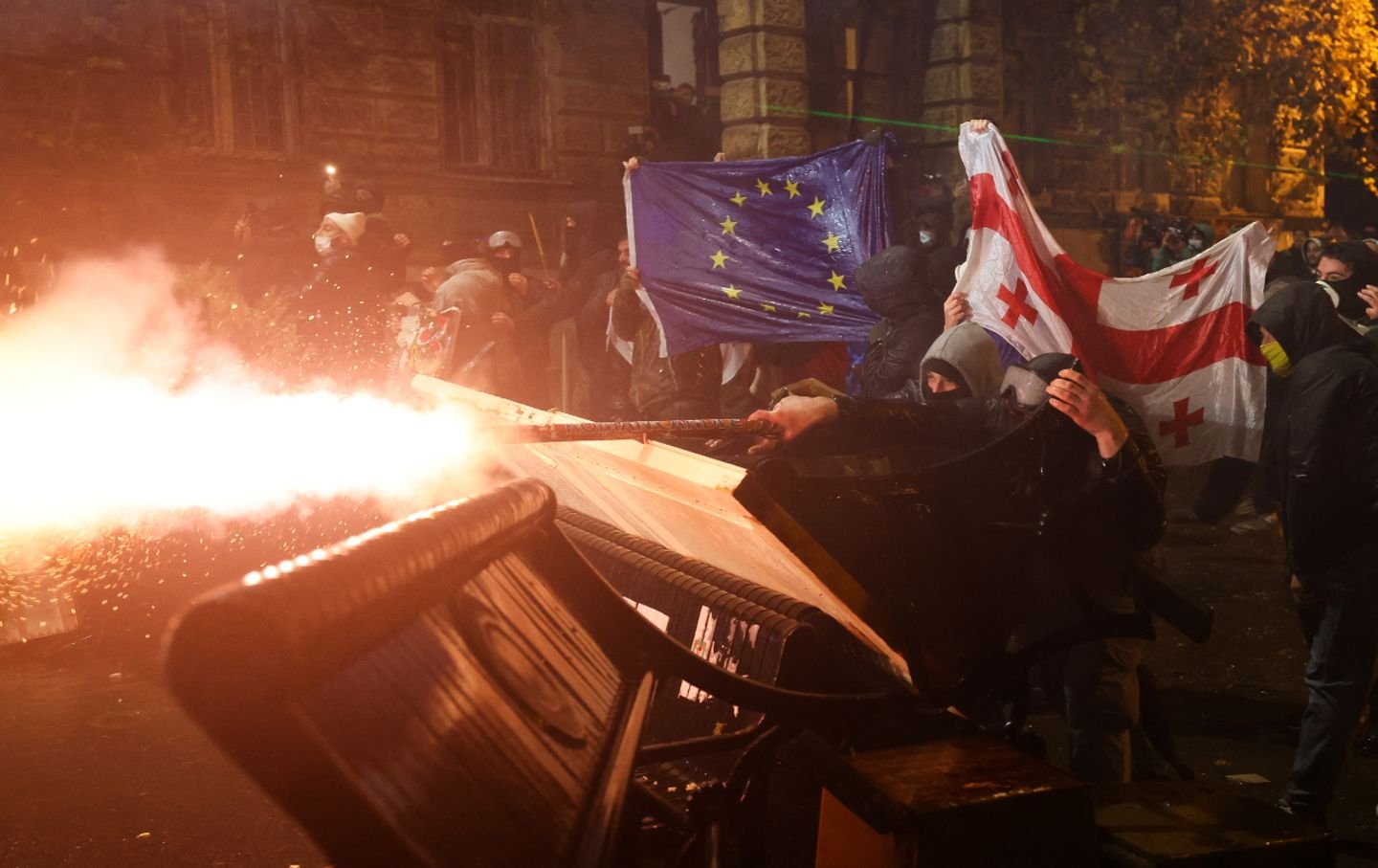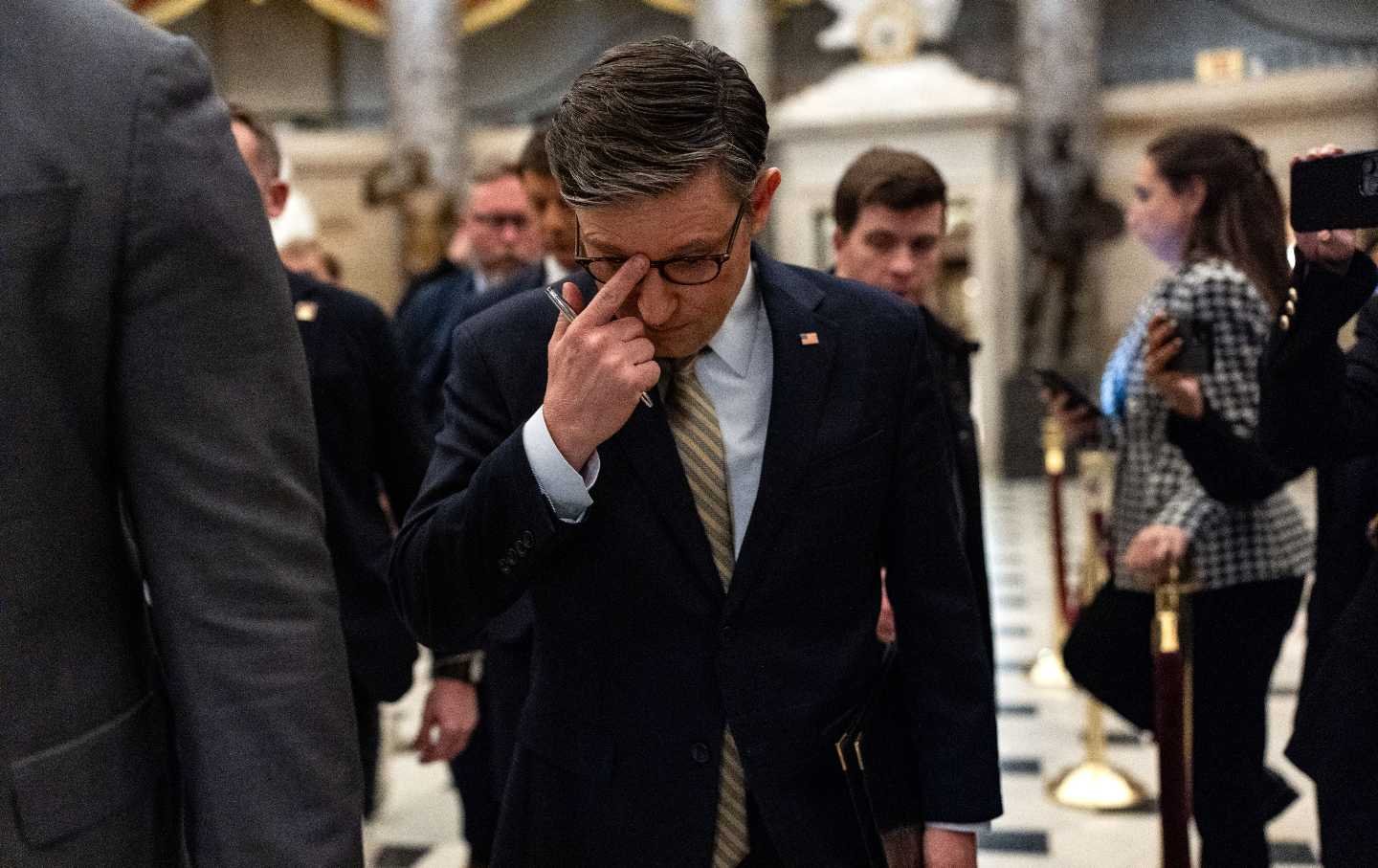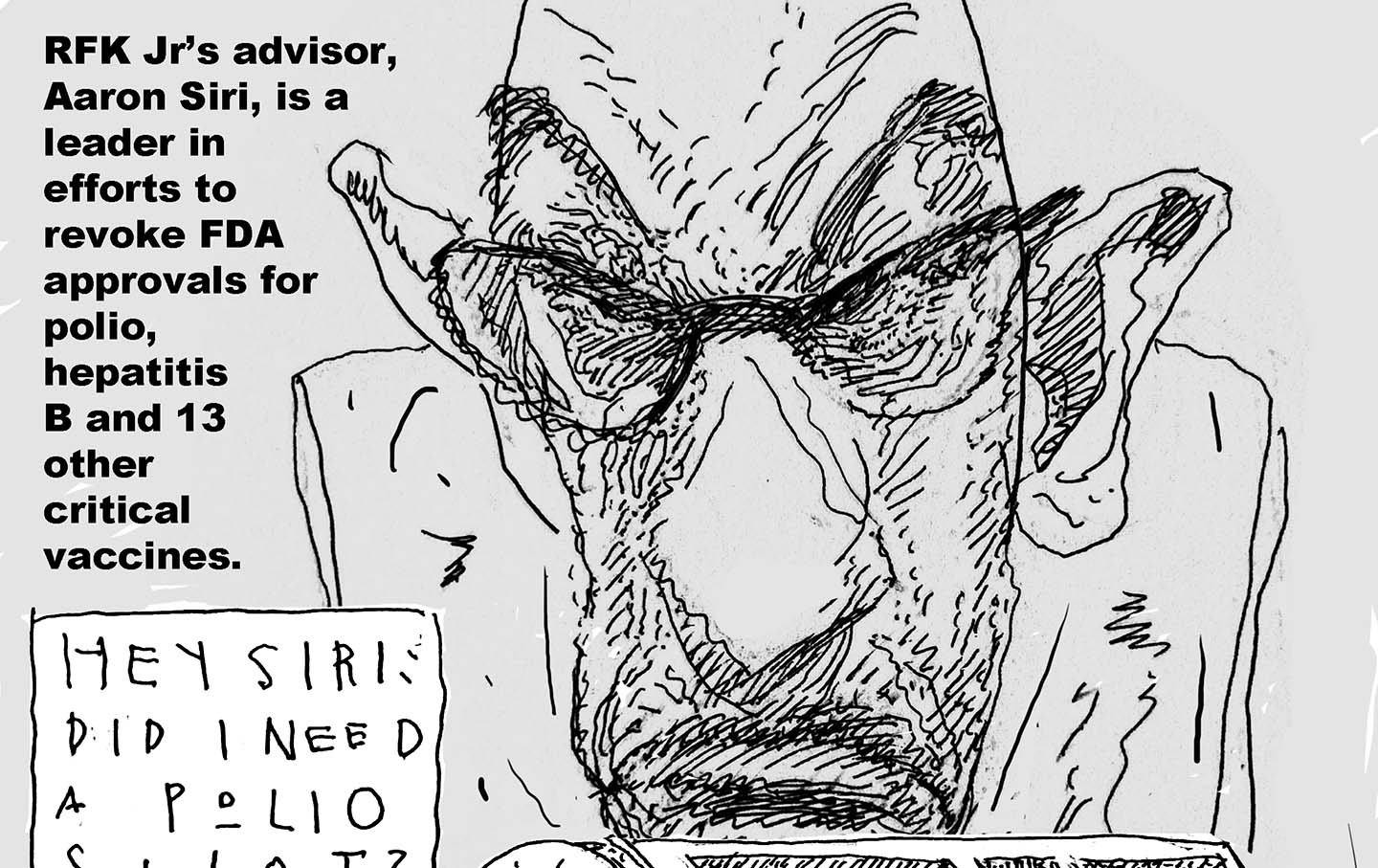The political disaster is escalating.
Over the previous 5 days, dozens of protesters and police have been hospitalized as anti-government protests engulf Tbilisi, the capital of Georgia. In scenes paying homage to Ukraine’s 2014 rebellion in opposition to a president accused of abandoning European integration in favor of nearer ties to Russia, professional–EU demonstrators, many carrying makeshift physique armor, attacked riot police and have been filmed capturing fireworks and flares towards the Parliament constructing.
The most recent chapter within the disaster started on Thanksgiving Day, when the European Parliament handed a decision condemning Georgia’s latest parliamentary elections as “neither free nor honest,” a part of a continued democratic backsliding “for which the ruling Georgian Dream social gathering is absolutely accountable.”
Calling for contemporary elections, the decision demanded EU sanctions in opposition to Georgian leaders, together with Prime Minister Irakli Kobakhidze, Tbilisi Mayor Kakha Kaladze, and parliamentary speaker Shalva Papuashvili. Georgia’s authorities responded by asserting the suspension of EU accession talks, which the EU had already frozen after Georgia adopted a regulation mandating foreign-funded NGOs to declare themselves as overseas brokers.
Though the protests have introduced Georgia’s political disaster to a harmful new escalation, the federal government has been in limbo for greater than a month after polls closed on October 26. Professional-Western President Salome Zourabichvili, whose put up is essentially ceremonial, has refused to simply accept the defeat of the opposition coalition she backed and has mentioned she won’t vacate the put up when her time period ends in December. She accuses the profitable Georgian Dream social gathering, which claims to assist EU accession whereas additionally sustaining constructive relations with Moscow, of getting stolen the election as a part of a “Russian particular operation” and has urged supporters to march on the seat of presidency.
Zourabichvili has rebuffed all requests to supply proof to again up her declare that the election was stolen. And whereas the worldwide observer mission famous that points similar to “intimidation, coercion and strain on voters endured, particularly on public sector staff and the economically susceptible,” it concluded that the election was “aggressive” and “procedurally well-organized and administered in an orderly method,” and that “contestants might usually marketing campaign freely.”
Regardless of this—and the truth that the mission has but to even publish its last report—a joint assertion declaring that the vote had been “neither free nor honest” was signed by greater than a dozen European and Canadian politicians in November, together with the chairs of parliamentary overseas affairs committees in Germany, Lithuania, Eire, and Ukraine. “Towards this background, the European Union can’t acknowledge the consequence,” the assertion learn.
Present Challenge
Over the previous month, dozens of EU politicians descended on the capital, Tbilisi, to face with Zourabichvili and put strain on Georgia’s electoral fee to invalidate the vote. On the weekend of November 10, in an unprecedented problem to diplomatic protocol, the chairs of the overseas affairs committees of Germany, France, Sweden, Finland, Poland, Estonia, Lithuania, and Latvia flew in to attend anti-government protests in entrance of Parliament.
There isn’t any doubt that Georgia’s election was marred by the type of soiled methods witnessed in younger (and not-so-young) democracies the world over, from scurrilous robocalls to tried vote-buying—often dedicated by incumbents. Georgian Dream officers and surrogates reportedly used large funds from their shadowy paymaster, oligarch Bidzina Ivanishvili, to bus civil servants to voting stations, plaster streets with pro-government posters, and entice aged and low-income voters with guarantees of freebies.
Teams of burly males of unclear affiliation lurked intimidatingly close to voting cubicles and stared down opposition supporters, a few of whom had been later crushed by unidentified thugs. On one event, captured on video and shared virally on social media, an obvious Georgian Dream supporter lunged at a poll field and rammed a fistful of ballots inside. (All of the votes in that polling station had been subsequently canceled.)
The worldwide condemnation of Georgia’s vote contrasts sharply with the enthusiastic acceptance of a equally controversial election in close by Moldova. Its reelected president, Maia Sandu, a former World Financial institution official who ran on a pro-EU, anti-Russia ticket, was instantly congratulated by Western leaders after her victory—regardless of widespread studies of disenfranchisement and intimidation skilled by supporters of her rival candidate, former prosecutor basic Alexandr Stoianoglo.
But Moldova’s election was hailed as successful by Western leaders, regardless of affected by most of the identical points which have turn out to be rallying cries for Georgian protesters. If something, they had been compounded by a way more restrictive media atmosphere than in Georgia, the place—regardless of widespread accusations of authoritarianism—the opposition controls a number of outstanding shops, together with the nation’s second-most-watched channel. In contrast, Sandu’s avowedly liberal, pro-Western authorities presided over the shuttering of each main opposition media outlet, ostensibly as a part of a crackdown on organized crime, oligarchs, and Russian interference. The impact was that, within the run-up to the election, Sandu’s governing social gathering commanded a digital monopoly over the airwaves—now managed virtually completely by her allies.
Maybe much more regarding was the federal government’s obvious function in disenfranchising tens of 1000’s of residents anticipated to vote in opposition to Sandu. In line with 2021 figures from the Moldovan Ministry of Overseas Affairs and European Integration, Russia is house to the biggest variety of Moldovan expats, at 354,000. But the Moldovan authorities opened simply two polling stations in your complete nation, in comparison with 60 in Italy and 20 in Germany.
One other group of Moldovans overwhelmingly supportive of Stoianoglo however unable to vote of their house area had been residents of Transnistria, the largely Russian-speaking breakaway republic that homes a significant Russian peacekeeping contingent. Since 1992, the area has been run by a pro-Russian authorities. Chisinau doesn’t acknowledge Transnistrian independence and considers its inhabitants to be Moldovan residents (most maintain Moldovan passports, usually along with Russian ones). But, simply as 1000’s of Transnistrians had been getting ready to enter Moldovan territory to forged their votes, Moldovan police claimed to have acquired a bomb risk and closed a key highway bridge for a number of hours. Entry to 2 different polling stations utilized by Transnistrians was additionally suspended as a consequence of bomb threats.
These examples of potential voter disenfranchisement by Moldova’s EU-friendly authorities had been just about ignored by the Western press and Moldova’s uniformly pro-EU media, which framed the competition as a geopolitical alternative between Russia and the West.
“The election grew to become a couple of civilizational battle, an id—being European,” mentioned Glenn Johnson, a veteran journalist who has written about Moldovan politics for Le Monde Diplomatique. “And the rationale for that’s that Sandu’s model of technocratic neoliberalism doesn’t actually enchantment to many Moldovans. They didn’t have a strong plan for how one can enhance Moldova, in order that they leveraged a poisonous id dispute throughout the nation.”
But elections virtually all the time hinge much less on grand geopolitical narratives than on a mixture of pocketbook points, native issues, and the relative high quality of particular person campaigns. On all these fronts, polls confirmed rising dissatisfaction with the way in which Sandu’s authorities fell wanting expectations on key points from anti-corruption to the price of dwelling, specifically by presiding over a large rise in vitality costs following botched negotiations with Russia’s Gazprom, the nation’s monopoly fuel supplier.
In line with the official vote tally, 51 % of Moldovans dwelling contained in the nation supported Stoianoglo, despite his weak marketing campaign, lack of identify recognition, and blanket pro-Sandu media protection. (Sandu received on the again of overwhelming assist from diaspora Moldovans dwelling within the West.)
Equally, whether or not or not one accepts the official tally, roughly half of all Georgians nonetheless selected Georgian Dream, which, for all its manifold flaws, delivered on a major a part of its electoral guarantees. Georgia’s economic system grew by over 9 % within the first half of 2024—greater than double that of Sandu-led Moldova throughout the identical interval. A good portion of this development resulted from the federal government’s choice to not sever commerce hyperlinks with Russia—a coverage the opposition vowed to reverse. On the worldwide entrance, it formally secured EU candidate standing and took steps towards doubtlessly resolving the decades-long battle with the breakaway areas of Abkhazia and South Ossetia.
“There’s lots of inequality, there are many issues, however Georgian Dream has achieved three huge issues,” mentioned Bryan Gigantino, a Tbilisi-based historian and cocreator of the podcast Reimagining Soviet Georgia. “First, they’ve overseen an enormous deepening in relations with the EU and NATO. Second, they’re overseeing unprecedented development. That’s only a reality. The expansion is distributed unequally. It’s capitalist development—it’s not really what employees want, but it surely’s development—you may’t deny it. And third, they’ve overseen no conflict.”
In style
“swipe left under to view extra authors”Swipe →
Crucially, it didn’t take its voters with no consideration—a criticism leveled at opposition events that seldom ventured outdoors their present city strongholds. “The opposition relied on their voter base and the existential risk of Russia, and that’s the reason they misplaced,” mentioned Gigantino. As a substitute, Georgian Dream activists campaigned energetically throughout the nation, together with in mountain areas and the distant countryside.
“Georgian Dream really campaigned for the elections. They went from one area to a different, they went to villages, they went to cities, they organized social gathering conferences,” Gio Meskhi, a labor historian on the Georgian Institute of Public Affairs, advised me. “It doesn’t imply that they really listened to the individuals, however not less than they pretended to pay attention. In the meantime, the opposition clung to Tbilisi, and so they clung to the identical one matter—that Georgian Dream is pro-Russian and we’re pro-European and we wish European integration however they don’t.”
As the previous UK diplomat Ian Proud has noticed, “making the Moldovan election a zero-sum tussle between Europe and Russia—moderately than a vote about what abnormal Moldovans wish to see occur domestically—dangers making Moldova a brand new, a lot smaller, extra economically susceptible model of Ukraine.” Unsurprisingly, when each Georgian Dream and Stoianoglo portrayed Ukraine’s post-Maidan trajectory as a cautionary story moderately than a job mannequin, it resonated with many citizens fearful that upsetting Russia might invite conflict onto their doorsteps too.
Such safety fears, moderately than any nice love for the Kremlin, go a great distance towards explaining Georgian Dream and Stoianoglo’s reluctance to antagonize Russia. “No person within the opposition is saying, ‘We wish to flip away from Europe and go to Russia,’” mentioned Vitalie Sprinceana, a Moldovan sociologist and cofounder of Platzforma.md, a web based media outlet for social criticism and activism. “What they’re really saying is, ‘Sure, we’re going to Europe, however we don’t wish to make an enemy of Moscow as a result of that may be very harmful for our small nation, and we’ve seen what occurs in Ukraine if you go for a zero-sum type of considering.’”
The same image holds in Georgia. “The concept that the state is captured by Russia and that they’re making an attempt to deliver it into Russia’s orbit is nonsense,” mentioned Gigantino. “The Georgian Dream shouldn’t be an anti-European or anti-EU power. [Prime Minister Irakli] Kobakhidze is a really pro-EU man. It’s simply that there are limits to how a lot state sovereignty they’ll sacrifice to observe what the EU says.”
But too many EU leaders proceed to push for radical brinkmanship couched within the language of democracy. That could be self-defeating: By so publicly casting doubt on the outcomes of Georgia’s election whereas wholeheartedly endorsing these in Moldova, the EU opened itself to accusations of hypocrisy.
Witness the bloc’s embrace of authoritarian states like Azerbaijan, whose strongman chief Ilham Aliyev was congratulated by European Council President Charles Michel and Ursula von der Leyen, president of the European Fee, after profitable 92 % of the vote within the February presidential election, through which no members of the opposition had been allowed to compete.
“The EU’s acceptance of the leads to Moldova however not in Georgia is the continuation of a longtime politics of double requirements and the blatant use of democracy as a slogan solely when it fits them,” mentioned Ivan Katchanovsky, a professor on the College of Ottawa and writer of The Maidan Bloodbath in Ukraine.
A method through which democratization has been weaponized by the EU is thru the funding and promotion of NGOs. In Georgia and Moldova, which lack an natural custom of Western-style civil society, virtually all NGOs are EU- and US-funded. But they’ve developed an outsize affect on the political system and overwhelmingly favored Sandu and Zourabichvili within the elections.
“At any time when the federal government needs to move laws, what they do is seek the advice of the NGOs,” mentioned Sprinceana. With foreign-funded teams now routinely changing public debate and participation, NGOs “have turn out to be an alternative choice to the citizenry,” he added. “They’re interested by themselves because the civilizing brokers of the West in a type of Third World nation and treating the native inhabitants as backward.”
In Georgia, too, the opposition has aligned itself closely with Western-funded NGOs, most of which, as in Moldova, get pleasure from little grassroots assist. “The opposition was defending NGOs and utilizing NGOs as a metric of democracy in Georgia, when the common Georgian has no connection to and no relationship with NGOs,” mentioned Gigantino.
For some, this strategy verges on the colonial. “When individuals discuss decolonization, it means solely eliminating Russia,” mentioned Sprinceana. “However one psychological, cultural, political, conceptual colonization is being changed by one other one.”
At the moment is #GivingTuesday, a worldwide day of giving that usually kicks off the year-end fundraising season for organizations that rely on donor assist to make ends meet and allow them to do their work—together with The Nation.
To assist us mobilize our neighborhood on this important second, an nameless donor is matching each present The Nation receives at this time, dollar-for-dollar, as much as $25,000. That implies that till midnight tonight, each present will likely be doubled, and its impression will go twice as far.
Proper now, the free press is dealing with an uphill battle like we’ve by no means confronted earlier than. The incoming administration considers impartial journalists “enemies of the individuals.” Assaults on free speech and freedom of the press, authorized and bodily assaults on journalists, and the ever-increasing energy and unfold of misinformation campaigns all threaten not simply our skill to do our work however our readers’ skill to seek out information, reporting, and evaluation they’ll belief.
If we hit our objective at this time, that’s $50,000 in complete income to shore up our newsroom, energy our investigative reporting and deep political evaluation, and make sure that we’re able to function a beacon of fact, civil resistance, and progressive energy within the weeks and months to return.
From our abolitionist roots to our ongoing dedication to upholding the rules of democracy and freedom, The Nation has been talking fact to energy for 160 years. Within the days forward, our work will matter greater than it ever has. To face up in opposition to political authoritarianism, white supremacy, a court docket system overrun by far-right appointees, and the myriad different threats looming on the horizon, we’ll want communities which are knowledgeable, related, fearless, and empowered with the reality.
This final result in November is one none of us hoped to see. However for greater than a century and a half, The Nation has been getting ready to fulfill it. We’re prepared for the struggle forward, and now, we’d like you to face with us. Be a part of us by making a donation to The Nation at this time, whereas each greenback goes twice as far.
Onward, in gratitude and solidarity,
Katrina vanden Heuvel
Editorial Director and Writer, The Nation
Extra from The Nation
Although it’s usually seen as a goal of Israeli aggression, the UN has all the time performed a vital function within the oppression of Palestinians.
Zena Tahhan
It’s shamefully simple to maintain going about one’s life whereas Israel continues its onslaught on Gaza with full US assist—and it’s completely important to withstand that impulse.
Haggai Matar
Protesters in assist of Imran Khan’s PTI social gathering had been met with obstruction and violence, resulting in mounting public outrage.
Hasan Ali
And it has been a strategic boon to the far proper at house and overseas.
Branko Marcetic
Ghayath Almadhoun had a poetry occasion in Berlin canceled just because he’s Palestinian. No less than 200 extra artists have been silenced over Palestine in Germany since.
Ghayath Almadhoun
In The Hidden Globe, Atossa Araxia Abrahamian examines what globalization has come to seem like for the rich.
Books & the Arts
/
Vanessa Ogle


